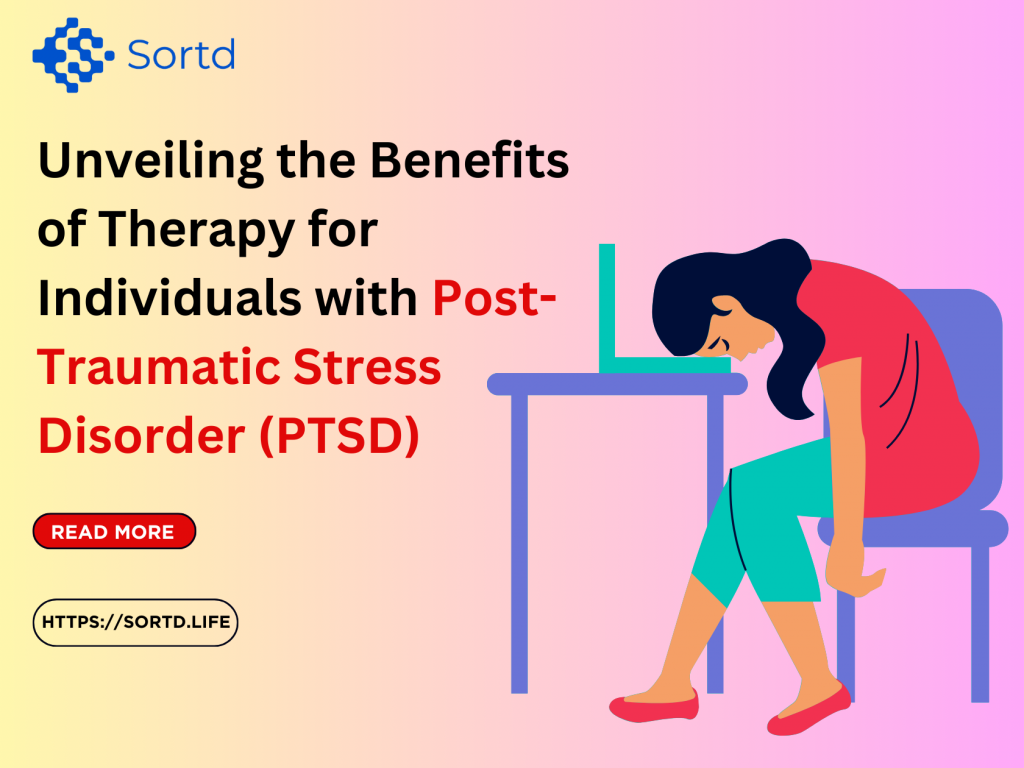
Unveiling the Benefits of Therapy for Individuals with Post-Traumatic Stress Disorder (PTSD)
Post-Traumatic Stress Disorder (PTSD) can cast a long and challenging shadow on the lives of those who experience it. However, there is a beacon of hope in the form of therapy. In this blog, we’ll delve into the profound benefits that therapy can offer to individuals grappling with PTSD.
1. Understanding the Roots:
Therapy provides a safe and supportive environment for individuals with PTSD to explore and understand the roots of their trauma. Through guided conversations, therapists help patients process their experiences, unraveling the complex layers of emotions tied to the traumatic event.
2. Coping Mechanisms and Skills:
Therapists equip individuals with PTSD with coping mechanisms and skills to manage their symptoms. From mindfulness techniques to stress-reducing strategies, therapy offers practical tools that empower individuals to navigate the challenges that may arise.
3. Emotional Regulation:
PTSD often brings intense and overwhelming emotions. Therapy aids in developing emotional regulation, enabling individuals to identify, express, and healthily manage their feelings. This newfound emotional control is crucial for fostering stability and resilience.
4. Breaking Isolation:
Many individuals with PTSD experience a sense of isolation and detachment. Therapy provides a space where they can break free from this isolation, offering a supportive connection with a trained professional who can guide them through their healing journey.
5. Rebuilding Trust:
Trauma can erode trust in oneself and others. Therapy fosters a gradual process of rebuilding trust, helping individuals learn to trust their instincts, reconnect with others, and establish healthy relationships.
6. Addressing Unhealthy Coping Mechanisms:
Individuals with Post-Traumatic Stress Disorder (PTSD) may develop unhealthy coping mechanisms, such as substance abuse or self-harm. Therapy assists in identifying and addressing these patterns, steering individuals toward healthier alternatives that promote long-term well-being.
7. Promoting Self-Compassion:
PTSD can be accompanied by self-blame and guilt. Therapy encourages self-compassion, allowing individuals to release feelings of shame and recognize their resilience in the face of trauma. Also, read Role of Mental Health Professionals in Treating Mental Illnesses
8. Encouraging Narrative Reconstruction:
Therapists assist individuals in reconstructing their narratives and reframing traumatic memories in a way that empowers rather than debilitates them. This process aids in reducing the emotional charge attached to the traumatic event.
9. Improving Quality of Life:
Ultimately, therapy contributes to an improved overall quality of life for individuals with PTSD. By addressing symptoms, enhancing coping skills, and promoting emotional well-being, therapy becomes a transformative force that extends beyond the therapy room.
10. Empowering Personal Growth:
Through therapy, individuals with PTSD embark on a journey of personal growth. They learn not only to survive but to thrive, discovering strength within themselves that goes beyond the confines of their traumatic experiences.
Conclusion:
Therapy stands as a beacon of hope, offering a pathway toward healing for those navigating the intricate landscape of PTSD. By understanding the roots of trauma, developing coping mechanisms, and fostering resilience, therapy paves the way for individuals to reclaim their lives and move toward a future defined by strength, growth, and recovery. Connect with expert Mental Health Therapist to take care of your Mental health.
